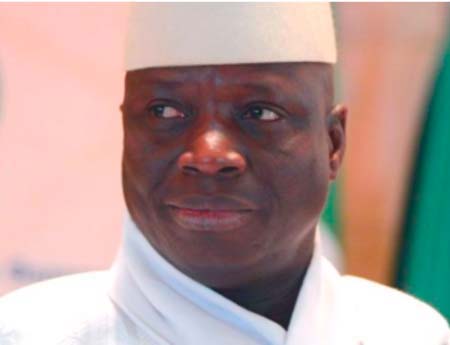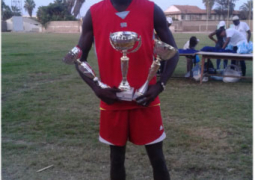
Recovering
the assets allegedly stolen and hidden or invested in foreign countries by
former President Yahya Jammeh could “take many years and numerous processes”,
the World Bank has said.
“Recovering
of stolen assets is a long term process; it could unfortunately take many years
because you have to work through the legal systems of many countries,” the
Country Director of World Bank Louise Cord said on Tuesday as the Bank signs a
US$56 million financing agreement with the government.
The
Gambia government said it will “vigorously pursue” recovery of assets allegedly
stolen by the former president through all available channels, including the
assistance of the World Bank Stolen Assets Recovery unit.
The
World Bank, in partnership with the United Nations Office on Drugs and Crime,
established Stolen Asset Recovery (StAR) initiative to help developing
countries recover assets stolen by corrupt leaders. Upon request, StAR provides technical
assistance to countries that are engaged in asset recovery cases.
The
World Bank country director said the Bank has received a request from The
Gambia government for support in the recovery of Jammeh’s alleged stolen
assets.
“The
request is being acted upon and a team is involved that is working closely with
the government,” Ms Cord said while reiterating that “the recovery process is
going to take certain amount of time”.
The
total amount of Jammeh’s stolen wealth is not known but preliminary
investigation by the government revealed that just within three years, the
notorious president allegedly embezzled D4.7 billion from state-owned
enterprises, notably Gamtel, Social Security and Housing Finance Corporation,
and the National Water and Electricity Company (NAWEC).
The
new government further accused him of leaving the state coffers with money
enough to pay only two-month salaries of the civil servants.
Jammeh
came to power a pauper but few years into his presidency, he became one of the
richest men on the continent with his net worth said to be more than US$1
billion, according to some estimates.
Recovering
the local assets
In
May, The Gambia government, through a court order, froze 88 bank accounts in
Jammeh’s name or those of his associates, along with 14 companies linked to
him.
For
now, these assets are just frozen, not confiscated.
The
minister of finance and economic affairs, Amadou Sanneh, said: “We need to move to the next stage and that
is going through the court and commission of inquiry which will pass a final
order on these assets.”
He
said the new government is “not going to behave like the former dictator” by
seizing assets and confiscate them with executive directives.
“We
are going through a process that is democratic,” the minister said, while
reiterating the slow pace of recovering stolen funds. “Recovering stolen assets
is a process and it has legal implications and that is why we are going
carefully to recover these assets.”
Economic
experts say the actual investigations that go with asset recovery programmes
can drag on for years because they are complex and costly. Money must often be tracked through countless
offshore bank accounts and shell companies and then directly linked to evidence
of corruption.
Meanwhile,
a report by the World Bank’s Stolen Asset Recovery programme found that, while
nearly $1.4 billion in suspected corrupt assets were frozen in countries of the
Organisation for Economic Co-operation and Development (OECD) between 2010 and
2012, less than $150 million was returned.
Many
Africans criticised European financial centres for failing to do more to return
money stolen from the continent by corrupt leaders.


